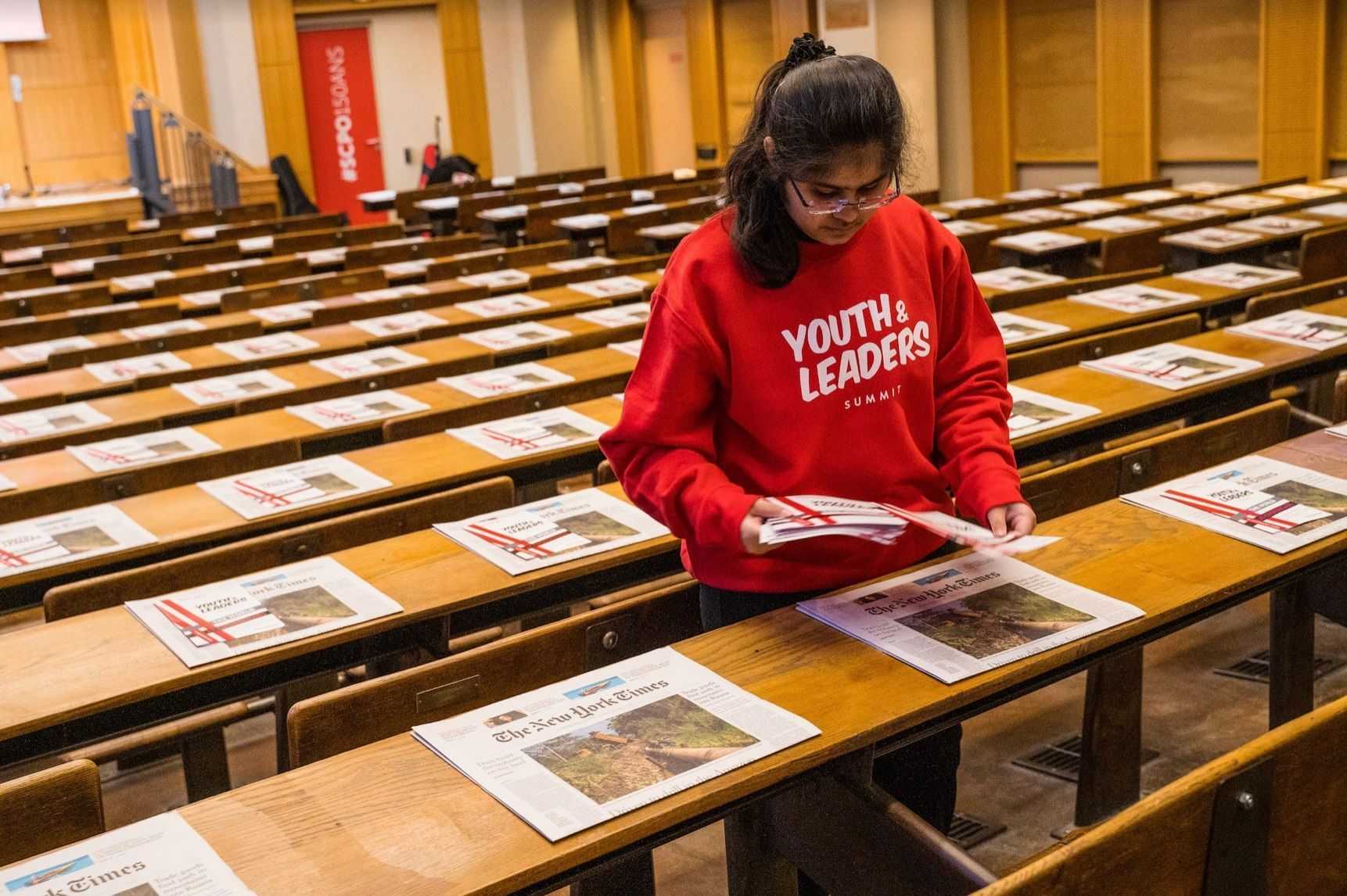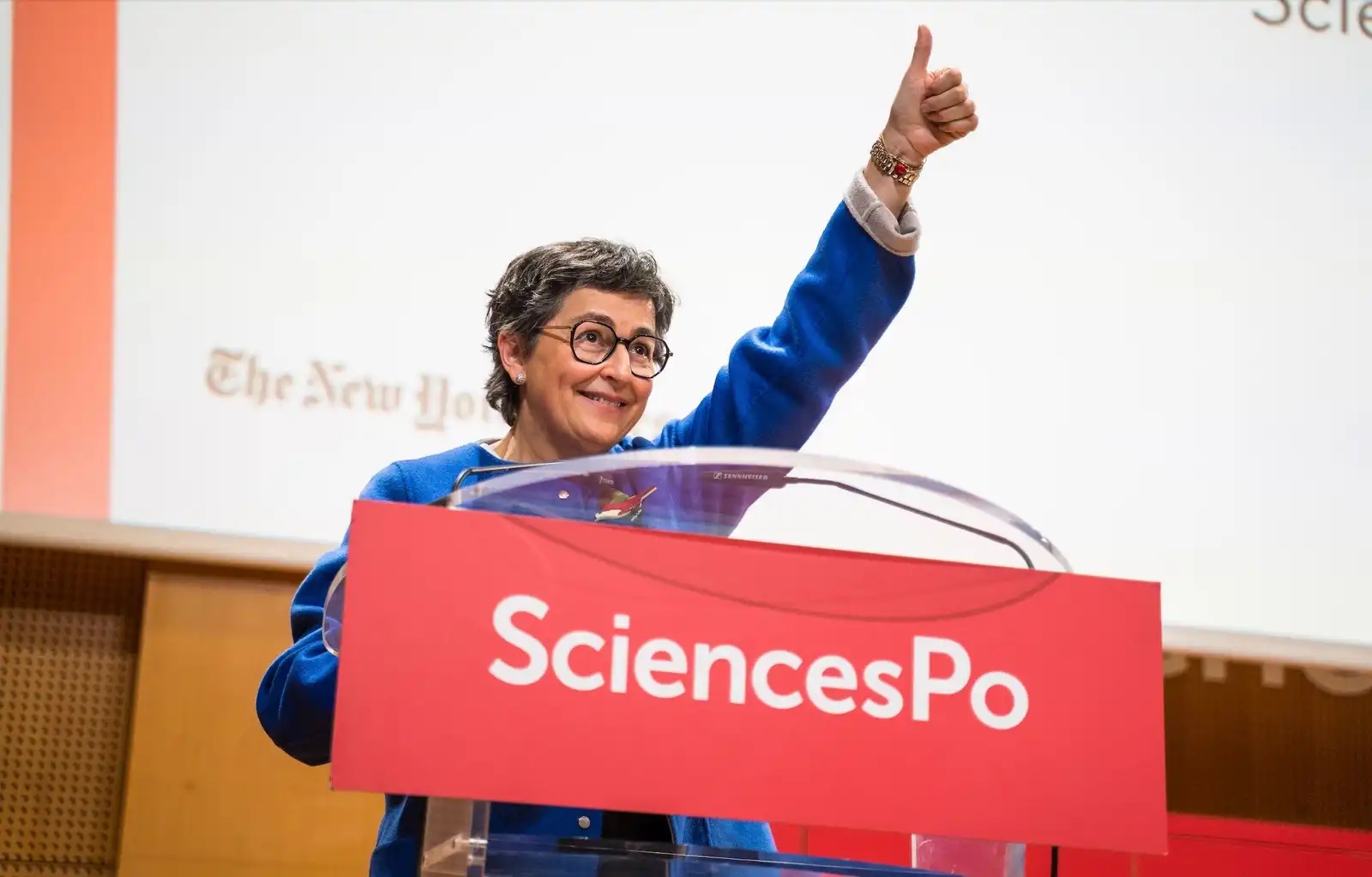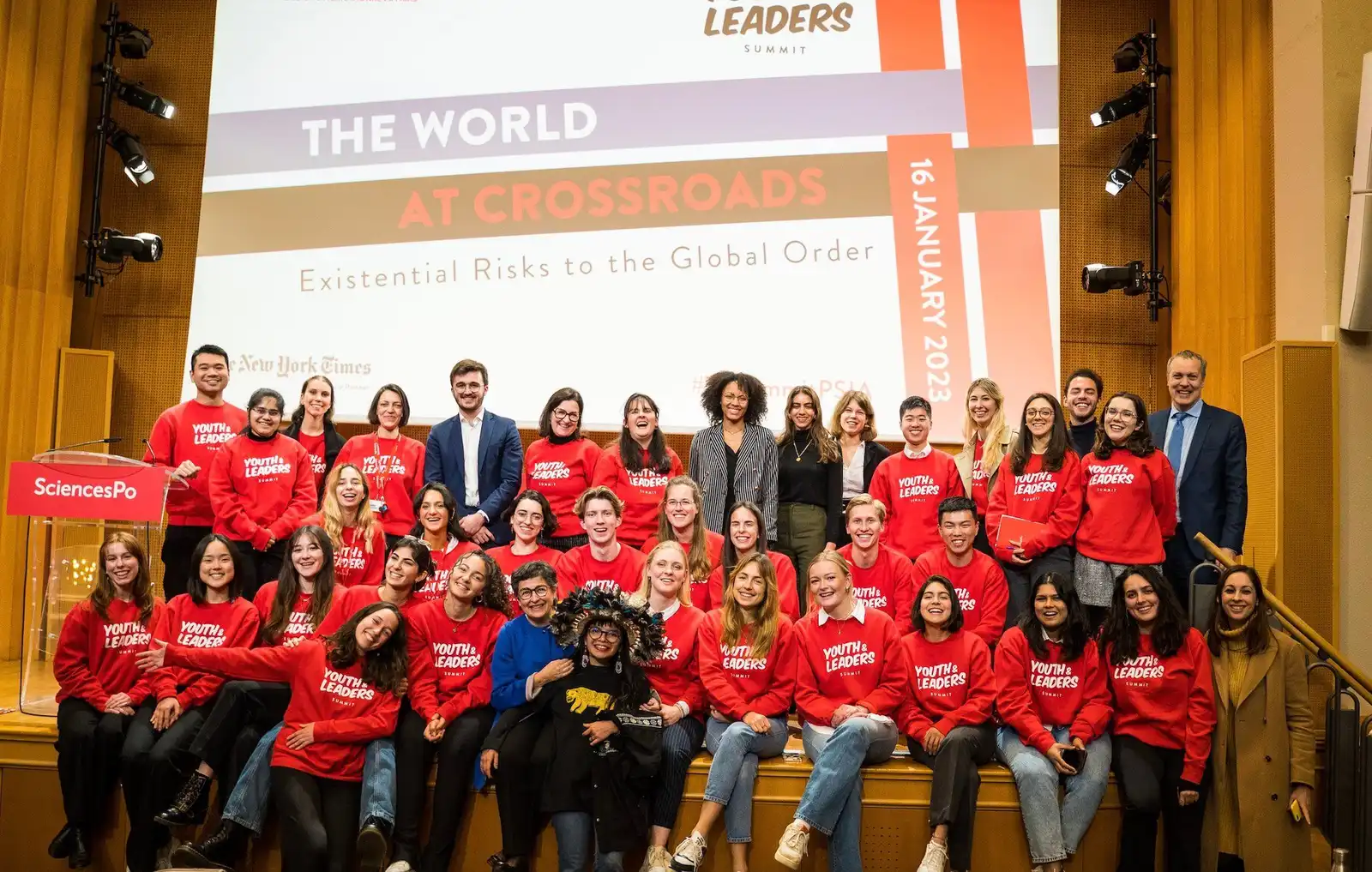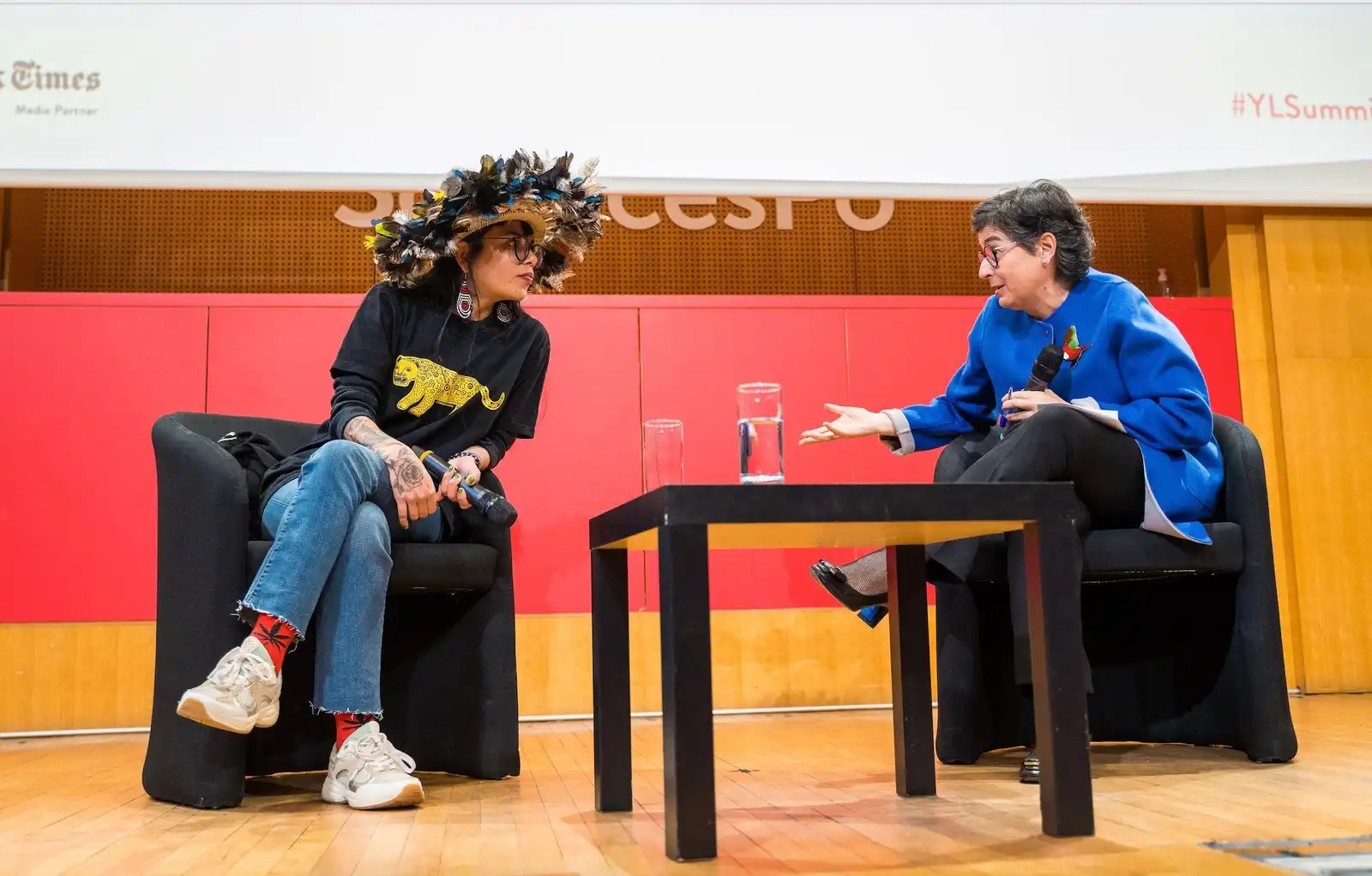Home>Students Tell All: The Youth & Leaders Summit 2023

27.01.2023
Students Tell All: The Youth & Leaders Summit 2023
On Monday, 16 January, hundreds gathered in the 27 rue Saint-Guillaume for the 8th edition of the Youth & Leaders Summit. This flagship event of the Paris School of International Affairs (PSIA) brings together experts, leaders, and students, as they brainstorm around panel discussions over existential threats to the global order at Sciences Po.
A sense of optimism to face abysses
As the past year has been eventful, seeing the wake of a war at Europe’s borders, leading to a dramatic inflation, as well as interrogations about phenomena such as climate change or artificial intelligence, the panels covered a wide range of topics. Such pressing threats, along with a lack of concrete responses in political discourses, have made these crossroads mutate into abysses in the collective mind.
But what happened on Monday was very much the opposite of this trend. Every panel, every intervention, every conclusion, diffused with it a sense of optimism, a “way out”, or “another way”. While acknowledging the difficulty and severity of the challenges young generations face, room was made for solutions and positive impact. Every seat was taken in Emile Boutmy’s amphitheater. As experts took to the stage, noisy applauses were followed by respectful silence… one could only hear the occasional bench cracking.
Avoiding economic fragmentation
The session began with an acknowledgement: globalisation today has led to a very different world that the one that saw it rising thirty years ago. Although it was meant to allow integration, major economic inequalities are a limit to its purpose. As we rethink the global financial system, José Manuel Salazar insisted on the need to parallelly improve democratic institutions. On that line, Katarina Körner then advocated for programs that tackle inequality also at national levels. Avoiding economic fragmentation is a must for reducing geopolitical tensions and favoring peace.
Preserving oceans
“What is a hopeful news?”, is the question that opened the panel. We are all now aware of the urgency of taking action against global warming: what has been done so far? What can we do to move forward? What is the role of the younger generation? The panelists brought a wide range of solutions, as they all shared the same goal. The climate crisis is intertwined with our economic system: Rémi Parmentier draw attention to the effects of subsidies, while Monika Verbeek and Vivienne Dosoo elaborated on the economy of well being.
Minimising the use of nuclear weapons
In parallel with the threat embedded by climate change and oceans’ degradation, nuclear weapons represent a deep concern in global security policies. Steven Erlanger opened the panel by wondering “if we are, sometimes, sleepwalking when it comes to nuclear weapons.” His fellow panelists adopted pragmatic and long-sighted visions. While Alexander Schallenberg vividly defended his vision of a world free of any nuclear weapon, French General Vincent Desportes advocated for a pragmatic analysis of the world’s superpowers’ use of nuclear threat.
Governing artificial intelligence
Trying to keep up with the latest developments within the Artificial Intelligence (AI) field is challenging, regardless of prior knowledge and experience. How can one balance data protection, consumer protection, and market competition laws while encouraging innovation in the field? During this session of the Summit, the panel suggested moving beyond the approach to AI as a dystopian prediction and instead focusing on adapting to this new reality at the regulatory level. Therefore, it was underlined that a transnational policy approach should urgently be adopted, with a particular emphasis by William Yee and Gabriela Ramos on the discriminatory biases currently in place in AI algorithms. Lastly, it was highlighted that policy methods should be multilateral and multidisciplinary – combining technology and social sciences knowledge, as suggested by Marc Mossé.
Implementing a just energy transition
Some techno-optimist individuals might see in the AI’s development an opportunity to postpone a worldwide energy transition. This was not the perspective that this panel has drawn. On the contrary, Damilola Ogunbiyi acknowledged that “we can’t wait for new technologies which may never come up” while Ditte Juul Jørgensen encouraged the audience to “make better use of our democratic institutions.” Farah El Yacoubi, on her part, pointed out the eco anxiety young generations are left with. The discussion was vividly orchestrated by Shiv Someshwar who asked the audience to challenge the decision makers.
Hearing dissident voices
To top it all off, Txai Surui’s keynote speech perfectly embodied what it means to be a young leader, to step up for not only what you believe in, but also for your own survival. “We have suffered the worst years, but things will change”, she said. And change can only be brought upon by hopeful and meaningful action. But change was already taking place on Monday, 16 January, in the hearts and minds of all those present at 27 rue Saint-Guillaume.
Thank you to Mariana de Abreu, student in the Joint Master in Journalism and International Affairs, Jade Alves-Gabiron, student in the Master in Environmental Policy and Lola Lopez Lungo, student in the Joint Master in Journalism and International Affairs, for sharing their experience through this article.
MORE INFORMATION:



